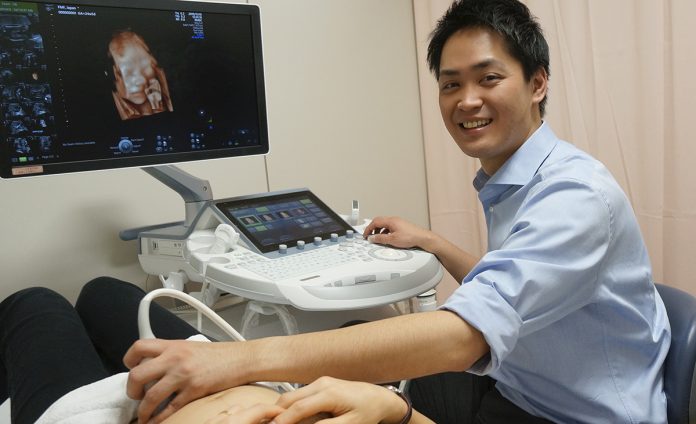Dr Nobuhiko Hayashi from The Fetal Medicine Foundation Japan, underlines the importance of improving the health of pregnant women and their babies through fetal medicine research and training
During the last 20 years, The Fetal Medicine Foundation (UK) has supported research and training in areas such as the following through grants worth a total of more than £23 million; early diagnosis of fetal abnormalities; screening for chromosomal defects; the development of safer techniques for prenatal diagnosis; prediction and prevention of preeclampsia; prediction and management of fetal growth restriction; and problems concerning multiple pregnancies.
The Fetal Medicine Foundation is a Registered Charity that aims to improve the health of pregnant women and their babies through research and training in the field of fetal medicine. In this interview, Dr Nobuhiko Hayashi from The Fetal Medicine Foundation Japan explains more about the challenges in Japan and the aim of the newly established organisation.
Can you introduce the aim of the Fetal Medicine Foundation Japan?
The philosophy of the organisation is the same as the Fetal Medicine Foundation in the UK. At the Fetal Medicine Foundation in Japan, we educate healthcare professions, dedicate our research to improve maternal-fetal outcomes and aim to provide safe maternal-fetal medicine in the country.
I would like to underline what I believe is a controversial and conflicting situation in Japan, yet it concerns scientists and social caregivers globally. By doing this, I expect international collaborations, donations, as well as the chance to learn from the experience and knowledge of other countries that have had the same ethical conflicts.
Going into more detail, the conflicts we are facing are as follows:
1. Increasing the number of abortions due to fetal abnormalities, despite its illegality.
2. A lack of official records about the precise reasons for abortions because medical abortions are reported as “financial reason.”
3. An absence of national guideline on prenatal screening because it might increase illegal abortions.
4. The fact that an infinite number of babies are dying prenatally or soon after birth due to undiagnosed congenital conditions, which could have been treated prenatally.
5. Although delivering and raising children with disabilities are forced by law, there is still a lack of social care and an understanding of this group.
Why do you have two different charity organisations?
In Japan, we have been avoiding a discussion about the prenatal diagnosis for over 20 years. Abortion due to fetal abnormalities became illegal in 1996 because it was thought to be a eugenic thought. Following the change, the Japanese Government announced a statement that healthcare professions should not advertise a first-trimester risk assessment using biochemistry. The statement has not been changed yet, then apparently there is a low prenatal detection rate of congenital abnormalities which could have been rescued/treated if you are diagnosed prenatally.
If I only started “FMF Japan” which aims to educate medical professions and improve the quality of prenatal medicine, it would lead to abortion due to prenatal diagnosis but this may lead to a misunderstanding of prenatal medicine. Prenatal medicine is not just a screening and an abortion but it involves prevention/screening/diagnosis/fetal therapy/palliative care (abortion).
You also have another charity organisation, can you introduce the work of NPO for Family and Baby Wellness?
Our NPO’s rationale for providing support can be found as essential in order to address the following issues:
1. There is no national guideline for prenatal diagnosis/prenatal counselling in Japan.
2. The stories of lives with disabled children are not being told and are at risk of becoming “taboo.”
We are providing:
1. An app to help find families like yours for mutual support.
2. Nurses accompanying children who need special medical care, such as a ventilator, allowing the children to go to school.
3. Booklets, which are useful when a couple faces prenatal diagnoses.
4. Collaboration with family associations: The Japan Down syndrome Society Japan Down’s Syndrome Association and the Japan Cleft Palate Foundation.
5. Collaboration with fetal medicine clinics (we provide peer support).
Why is the parental support needed?
Because of the abortion law in Japan, prenatal screening is not nationally implemented. However, we know that prenatal diagnoses improve the fetal outcome in certain cases, such as in congenital heart diseases, open spina bifida, fetal anaemia. etc.
To implement the screening programme, prenatal support is needed because prenatal diagnoses have a huge impact on a couple. And they may need information, psychological counselling and coaching system to make a decision during a short period of time.
They also need long-term support after the decision is made. When you end the pregnancy, you will reflect on your decision and ask yourself if you did the right thing or not. When you continue the pregnancy, you also ask yourself the same question. You might think you are forcing the child suffering from the congenital conditions. You might be criticised by society.
Why are medical research and education needed in fetal medicine?
Medical research on fetal life changes lives in the future. It’s our responsibility to improve fetal medicine. Education is critical to improving the quality of fetal medicine; counselling, scanning and performing invasive procedures.
Education is also important for good quality research. Like the Fetal Medicine Foundation (FMF) in the UK, we need a huge network between hospitals and clinics to carry out multicentre clinical studies/trials. Good education make doctors/sonographers get a precise measurement, for example.
Finally, tell us about your aim to improve the health of pregnant women and their babies through research and training in fetal medicine.
We aim to provide both safe and high-quality fetal medicine, to ensure a better outcome for both mother and baby, and to allow women to decide what to do with the information that is available to them.
*Please note: This is a commercial profile











